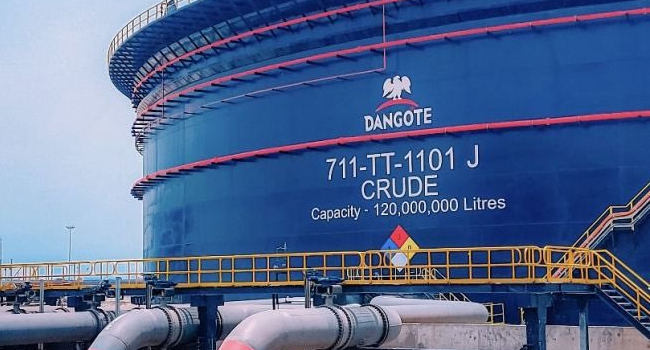The Nigerian Upstream Petroleum Regulatory Commission (NUPRC) has revealed that many oil companies in Nigeria opposed the Federal Government’s directive to supply crude oil to local refineries, including the Dangote Petroleum Refinery, in 2023. This move was part of efforts to enforce the Domestic Crude Supply Obligation (DCSO) policy under the Petroleum Industry Act (PIA). The companies, however, resisted the policy, citing several challenges and reasons for their refusal.
According to a detailed report released by the NUPRC, the commission had communicated with both international and local oil producers about their required contributions to Nigeria’s domestic refining efforts. Letters were sent to the companies, requesting them to submit all crude sales and purchase agreements that could affect domestic supply. But instead of complying fully, the oil firms, under various groups like the Independent Petroleum Producers Group (IPPG) and Oil Producers Trade Section (OPTS), responded with official letters asking for waivers or stating why they could not meet the volumes assigned to them.
The commission, led by its Chief Executive Officer, Mr. Gbenga Komolafe, made several efforts to implement the policy. These included the gazetting of the Production Curtailment and Domestic Crude Supply Obligation Regulations in September 2023 and holding multiple engagements with stakeholders. Despite this, the oil companies continued to push back. By August 2024, just a month after domestic crude obligations were assigned to companies capable of producing over 3,000 barrels per day, the commission began receiving more letters from oil producers and their equity partners rejecting or challenging the obligations.
The NUPRC said it formed a working group in March 2023 involving major stakeholders in the oil and gas industry. These included officials from the NUPRC itself, the Nigerian National Petroleum Company (NNPC) Upstream Investment Management Services, Crude Oil Refinery Owners Association of Nigeria (CORAN), IPPG, and OPTS. The group was tasked with creating a comprehensive framework to resolve the concerns raised by oil producers. A template was jointly developed to guide how daily crude allocations would be calculated, taking into account each company’s actual capacity and production forecasts.
To ensure transparency, the commission stated that the allocations were to be reviewed and issued every six months. The operational guideline was signed by Mr. Komolafe on July 11, 2024. By the end of July, companies that could meet the 3,000-barrels-per-day threshold were issued their crude supply mandates for the rest of the year.
However, many of these companies still failed to comply. They protested not only the obligations but also the presence of refinery owners, including Dangote Refinery officials, at the monthly crude production curtailment meetings. In response to these complaints, the NUPRC, in September, sent a letter to all refinery representatives, temporarily suspending their attendance at those meetings. This move was meant to address concerns raised by the oil producers who felt the refiners should not be part of production-related discussions.
In the same month, the Nigerian National Petroleum Company Limited (NNPC Ltd) sent a report to the NUPRC, giving an update on the crude oil supplied to Dangote Refinery. The contents of the report were not made public, but the commission assured that crude supply facilitation continued despite the objections.
The NUPRC maintained that it is committed to fulfilling the goals of the Petroleum Industry Act, which includes making sure that Nigeria’s domestic refining sector is adequately supplied with crude oil. This, it said, is crucial to reducing dependence on imported petroleum products and boosting local refining capacity.
While the pushback from oil producers remains a challenge, the government and the NUPRC appear determined to see the DCSO policy through. It remains to be seen how the situation will evolve as more refineries in Nigeria begin operations and the demand for locally sourced crude increases.
